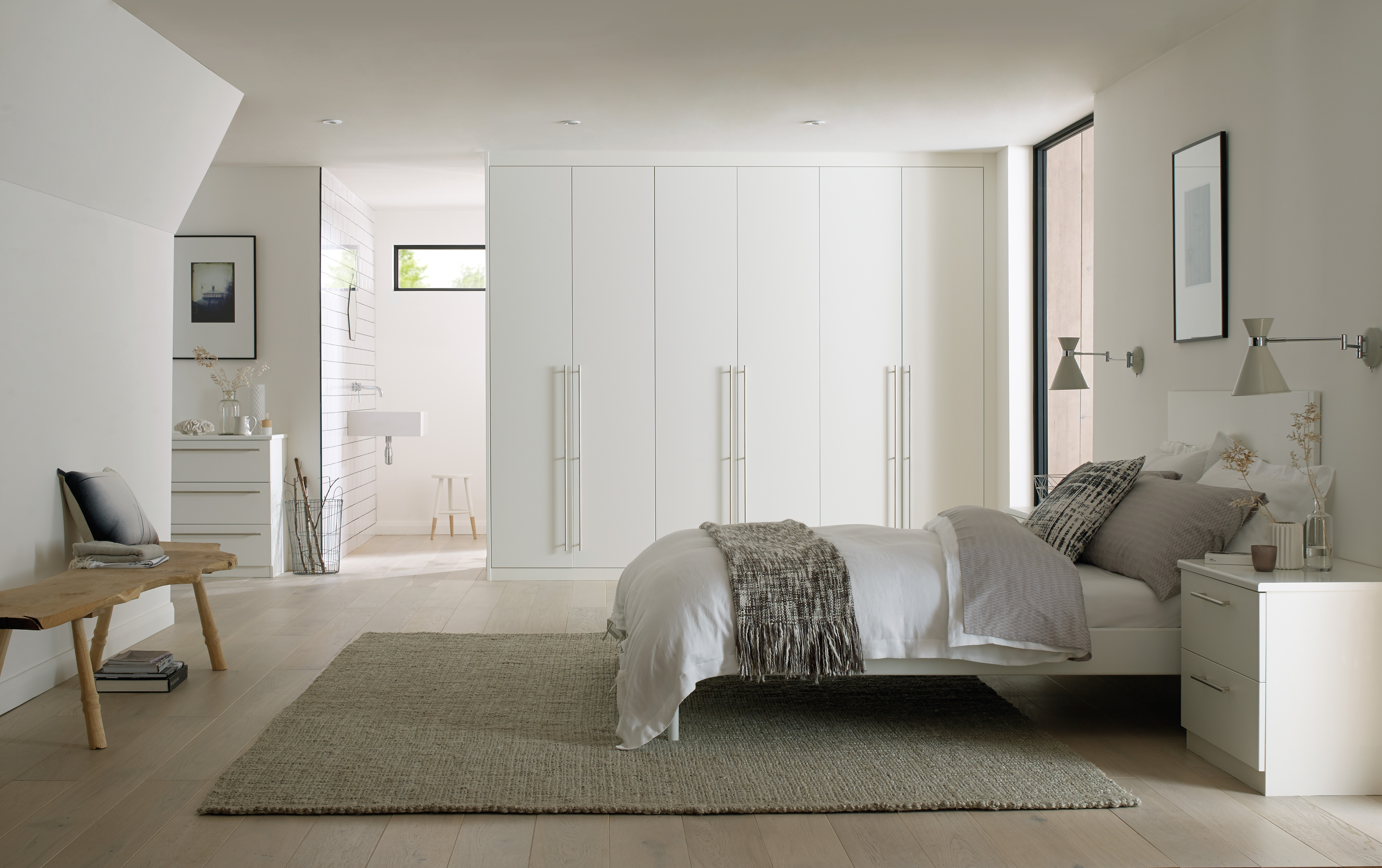
Whether your home has spacious bedrooms, with plenty of room for a master suite, or you've knocked through to a smaller box room to create one larger bedroom with room, this is the perfect opportunity to add a dressing room, perhaps an en suite, and space to unwind. But before you begin to design your new bedroom, be inspired by these gorgeous master suite design ideas.
1. Create defined zones
For compact urban homes, room dividers work brilliantly, especially those that incorporate unobtrusive, stylish full-height storage to create different sleeping and living areas without blocking natural light. As well as open shelving for books and ornaments, you can include cupboards to accommodate larger items that don’t need to be on show.
Even better, this type of furniture can be accessed on both sides, enabling it to serve several functions or adapt to one part of the room as your storage needs change. Opt for a unit with moveable shelves for an added degree of flexibility.
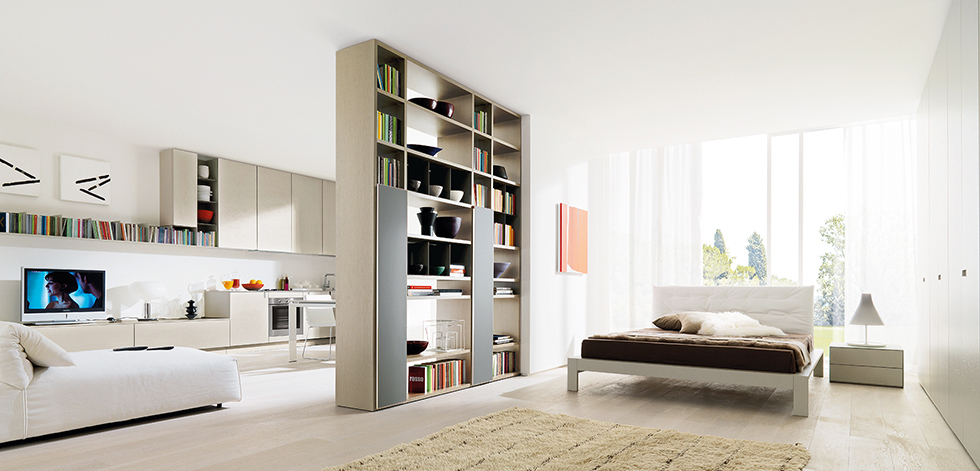
2. Include an en suite
An en suite is a must-have for a luxurious master bedroom, but making the two work together aesthetically can be tricky as they serve such different purposes. Treating them as one space is key, so choose complementary colours and finishes, and similar materials where possible.
Several companies offer fitted furniture and vanity units that match, or you could try picking up on a motif used in your bedroom in your bathroom. It also helps to make the divide between the rooms less obvious, so instead of a conventional solid door, fit a frosted glass panel or sliding door, which will also aid the flow of light.
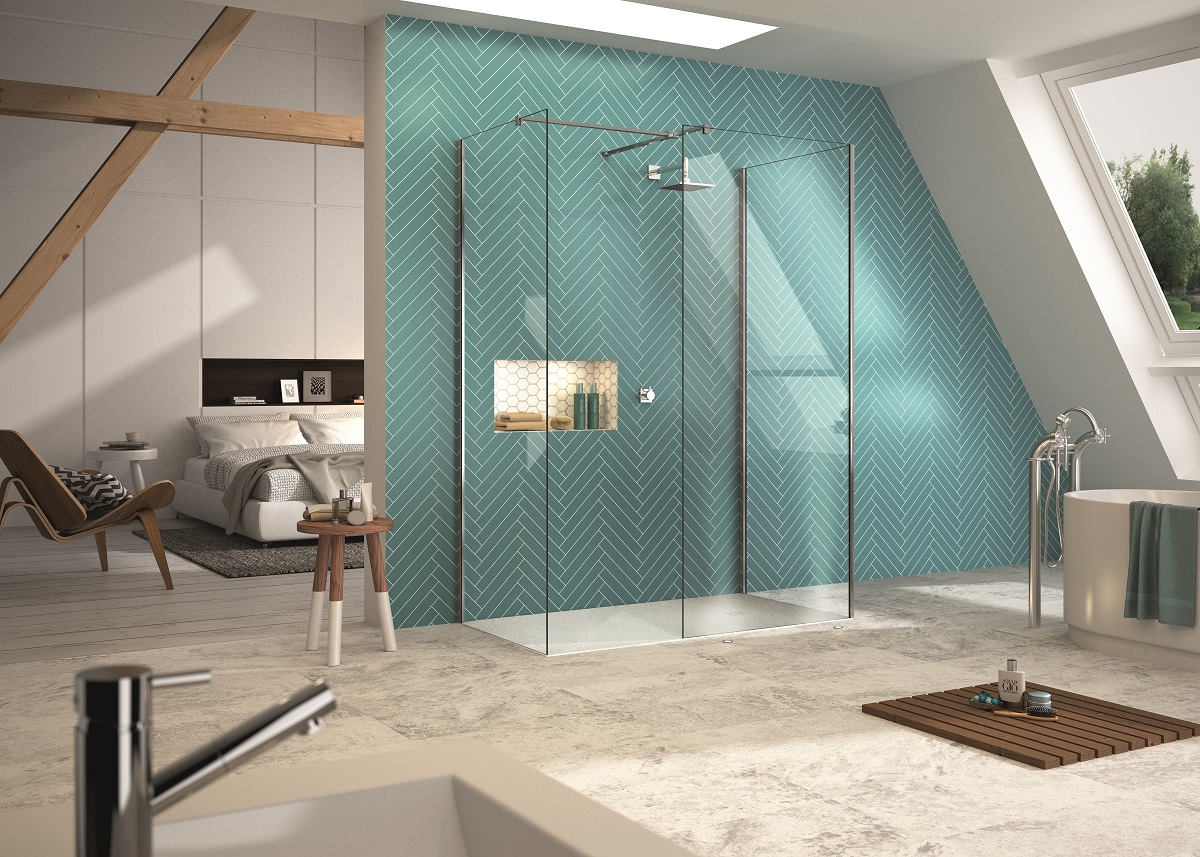
3. Fit versatile storage
Few of us live in homes with perfectly straight walls and square rooms, so it makes sense to design full-height wardrobes and built-in bedroom storage that can maximise every inch of the bedroom ceiling, angles and alcove space. Prevent it from looking too imposing by including some open shelving, which can be given over to displaying your favourite pieces or photos, or be home to baskets for storing small items.
Finally, if you have plenty of natural light, there’s no need to stick to lighter shades, so be daring and opt for a smoky timber-look door finish combined with slim bar handles. Echo in other places around the room, such as floating bedside drawers or the bed itself, for a cohesive feel.
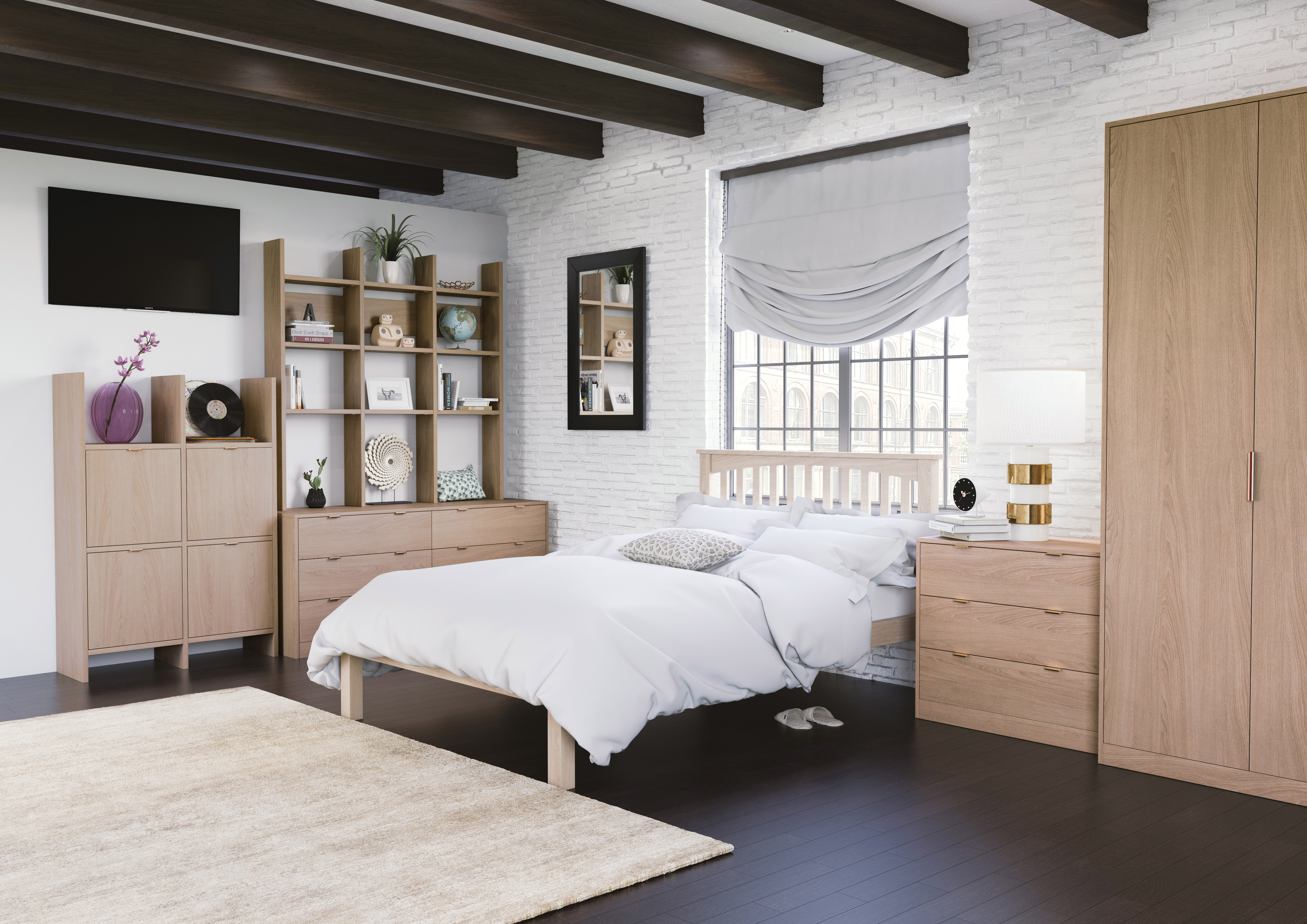
4. Choose appropriate window treatments
Turn your bedroom into a cosy cocoon with a set of streamlined Venetian blinds at every window. They are ideal for blocking out unwanted light, especially in a room overlooked by streetlights, but do invest in blinds that close tightly for the full blackout effect. During the day, they’ll gently filter the light while maintaining privacy, or they can be drawn up fully. Minimalist white blinds by themselves give a modern look, but if you prefer a more traditional treatment, choose a timber finish or add decorative curtains or sheer voiles for a softer, serene effect.
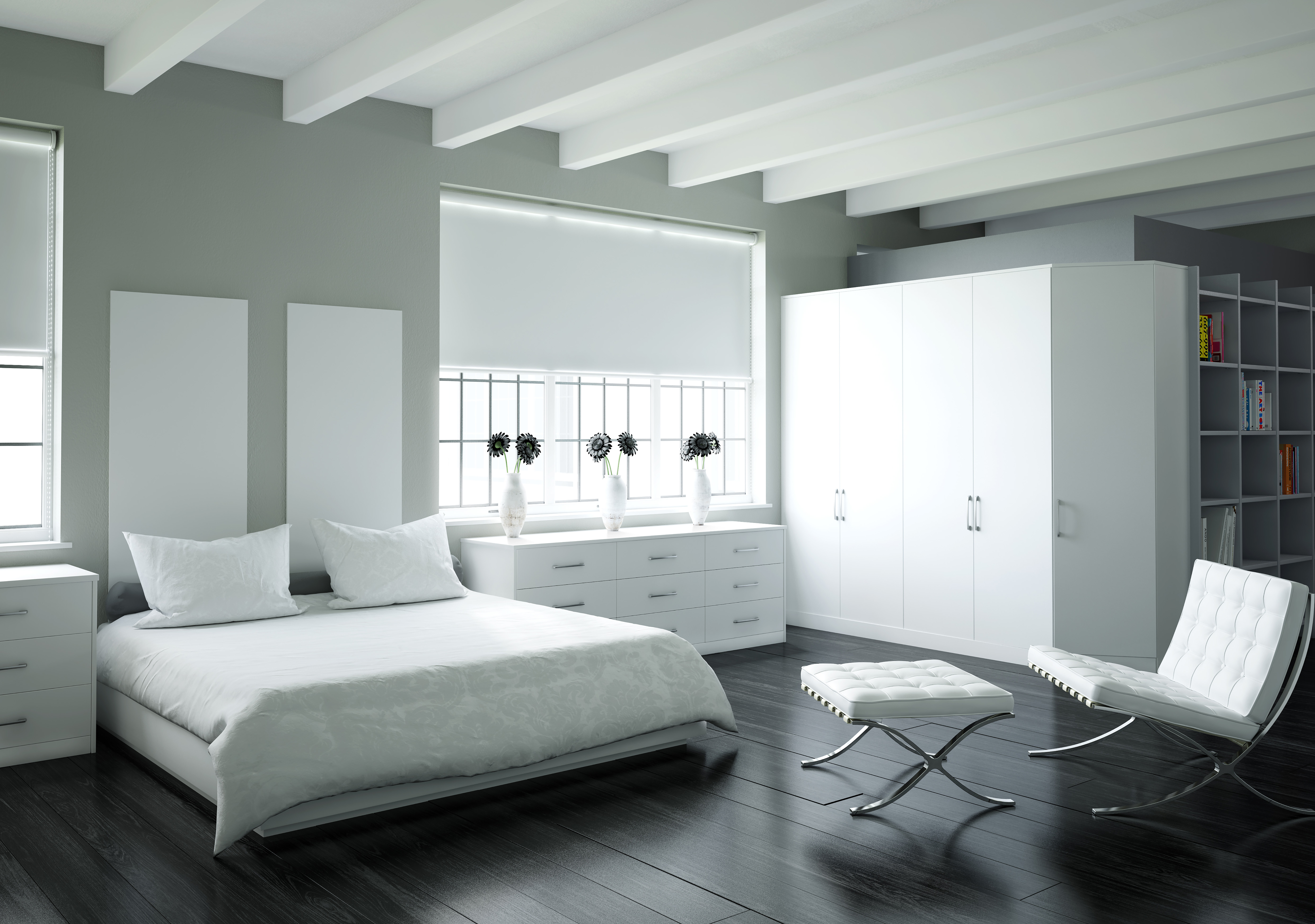
5. Choose neutral paint colours
Continuing a paint colour scheme from a bedroom through to an adjoining space helps to unite the two, making them feel as one. Versatile furniture is especially good for creating a link, whether finished mainly in one soft shade or with an accent tone against a neutral backdrop. Pastel colours are a timeless choice for bedrooms, but steer clear of sugary pink and instead opt for off-white with a warm undertone. Not only do these shades blend well with white and grey, but they’re also soothing without feeling cold.
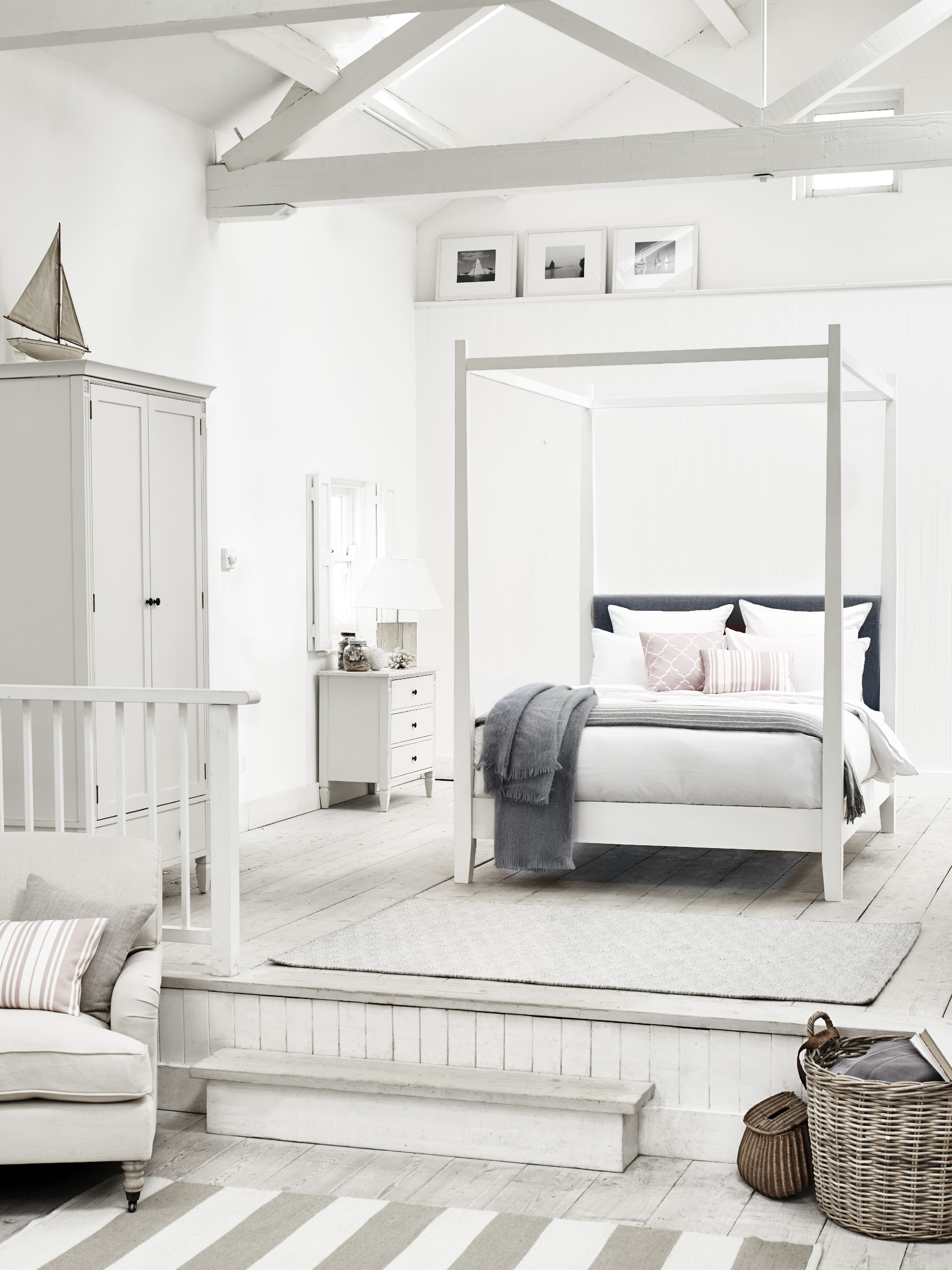
6. Choose the best place for the TV
Trying to work out where to place a TV in a bedroom can be a real interior design challenge. Not only does it need to be visible when required, so that it can be watched while you’re relaxing, it also needs to be as visually unobtrusive as possible when not in use. If retractable screens are out of your budget, building one into fitted furniture is an easy fix, minimising its impact and neatly framing it. Glossy furniture in a neutral shade gives an instant sense of glamour and also works well with a range of accent colours.
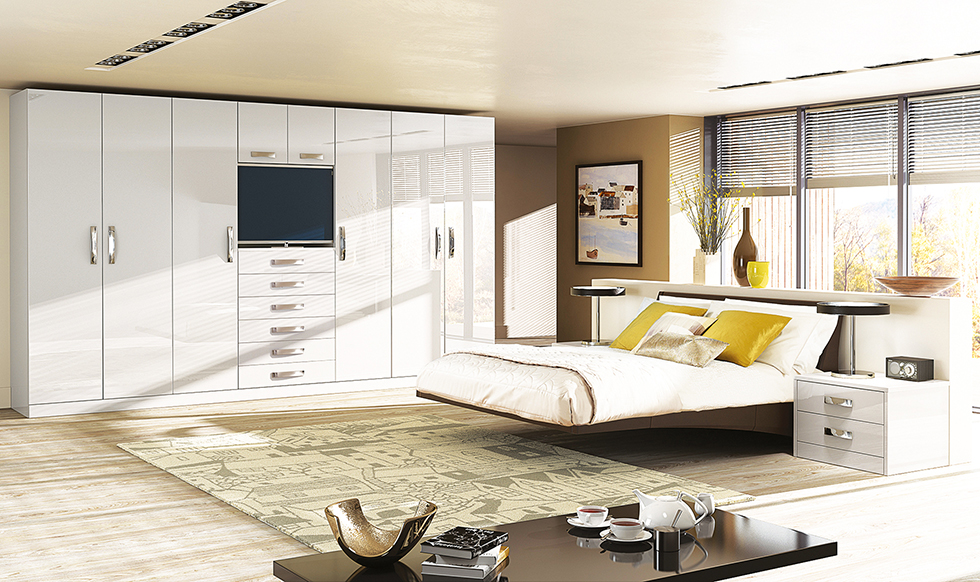
7. Divide the bedroom into different areas
The trend for all things industrial has brought Crittall-style hot-rolled steel windows back into our homes. Plate-glass walls and doors also double up beautifully as room dividers between a dressing room, en suite or home office, giving a master bedroom a sense of grandeur and allowing the space to feel bigger and brighter, yet still cosy. Make internal glazing a central feature of the design by keeping the rest of the room effortlessly simple — glossy painted floorboards, unobtrusive lighting and neutral linens are ideal, while classic mid-toned timber furniture with a visible grain will emphasise the raw materials.
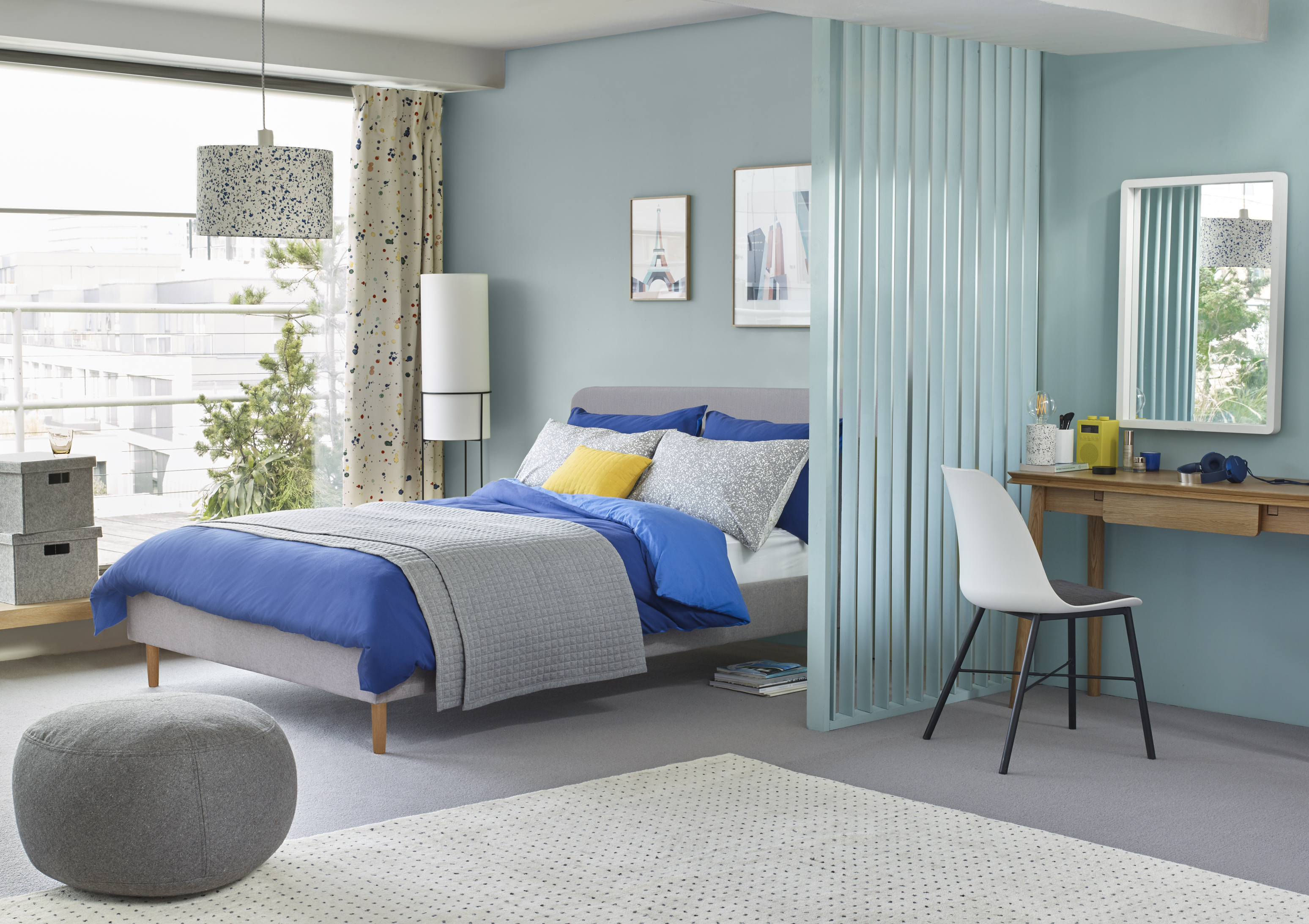
8. Add a touch of glamour to the decor
Small bedrooms rarely have the capacity for wishlist items, such as dressing tables, but that doesn’t mean you can’t include the features that make this type of furniture so desirable. An elegant mirror mounted on the wall with a shallow double shelf below re-creates the look without taking up any floor space. Pair with a neat stool that can be tidied away underneath the shelf when not in use, and add lighting behind or around the edge of the mirror. Not only will this ensure that you can always see what you’re doing, but it will turn the area into a fabulous focal point.
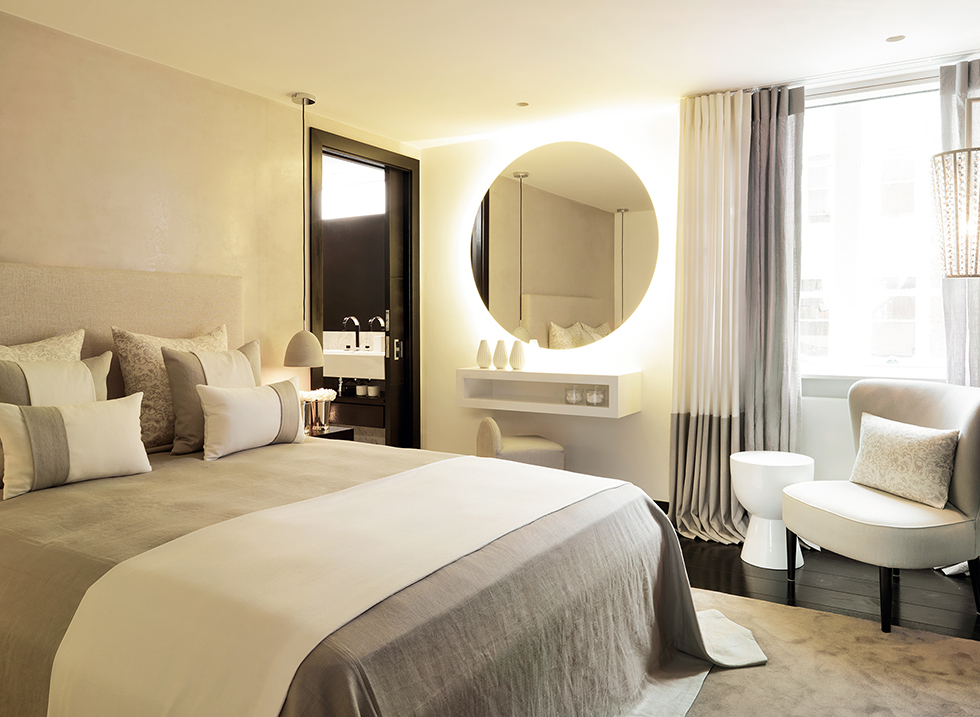
9. Keep the style contermporary
Large runs of built-in mirrored wardrobe doors are perfect for making dark rooms look brighter, but they can feel uninspiring and dated. Enjoy all the benefits but with a modern twist by using floor-to-ceiling tinted or antiqued mirrors, flanked by smooth wooden doors and minimal handles. Choose a timber in a pale tone, which can also be continued around the room to form a matching fitted dressing table and bedside furniture while maintaining the light and airy effect. Keep accessories equally reflective and simple, such as glass lamp bases and vases.

10. Invest in great storage – or a walk-in wardrobe
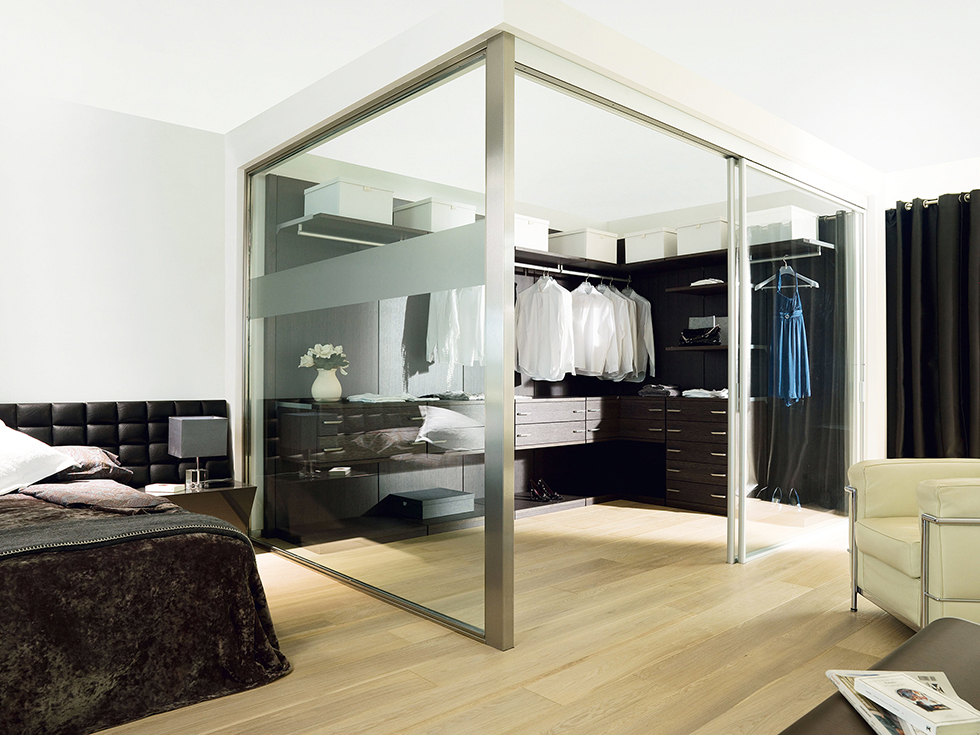
Create the walk-in wardrobe effect without having to spare the space with open hanging rails and shelf storage. While it means keeping your cupboards neat and organised, it will also allow you to see what’s inside at a glance. Most fitted wardrobes can be personalised to suit your needs, so be sure to plan in advance how much space you’ll need for shoes and small items, as well as clothes. Overhead lighting is also useful for open clothes storage — not only to illuminate the contents, making finding things easier, but also to turn the unit into a focal point.
For more dressing room ideas check out our feature.
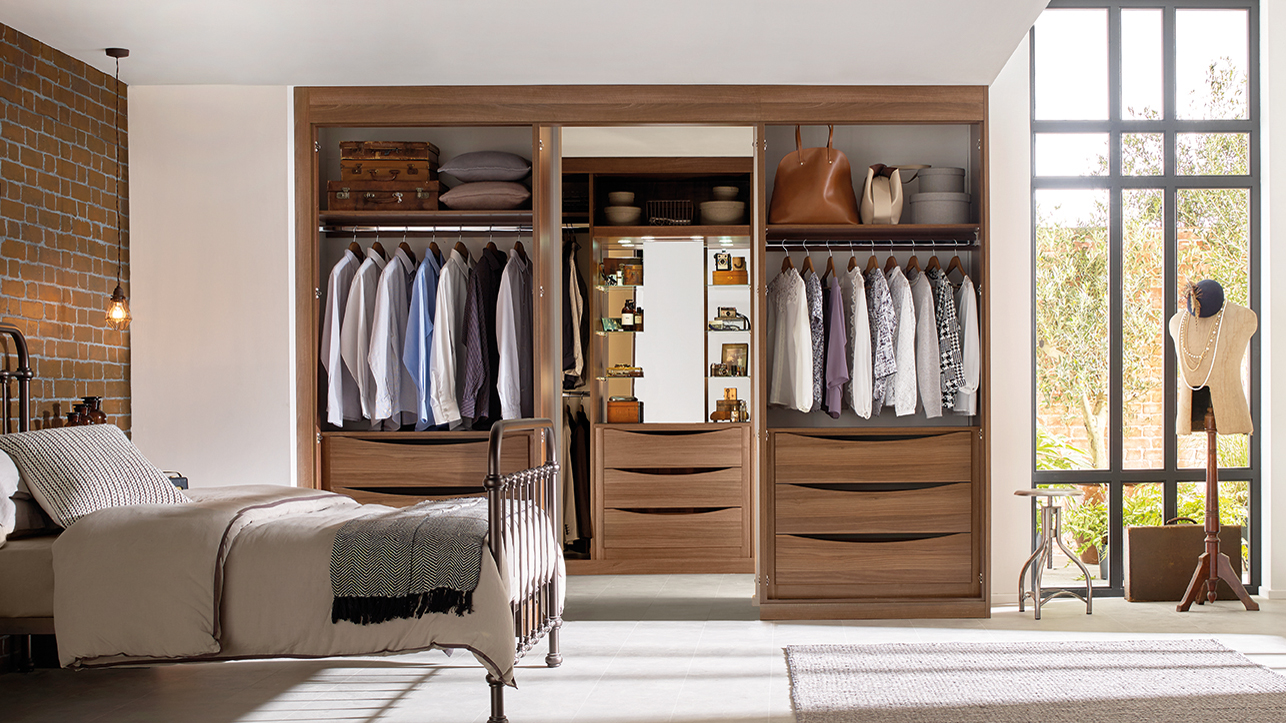
11. Maximise the seating potential
If your bedroom doesn’t have space for a cosy armchair or chaise, a window seat or banquette might be a good design solution. As well as creating a place to relax with a magazine and a hot drink, a built-in window seat can provide plenty of additional storage that freestanding furniture might not accommodate. Either choose deep, roomy drawers, or a padded seat that lifts up to reveal storage space underneath — great for hiding anything from bedlinen and curtains to towels. Make the area as inviting as possible by accessorising with plump cushions and a throw for the cooler months.
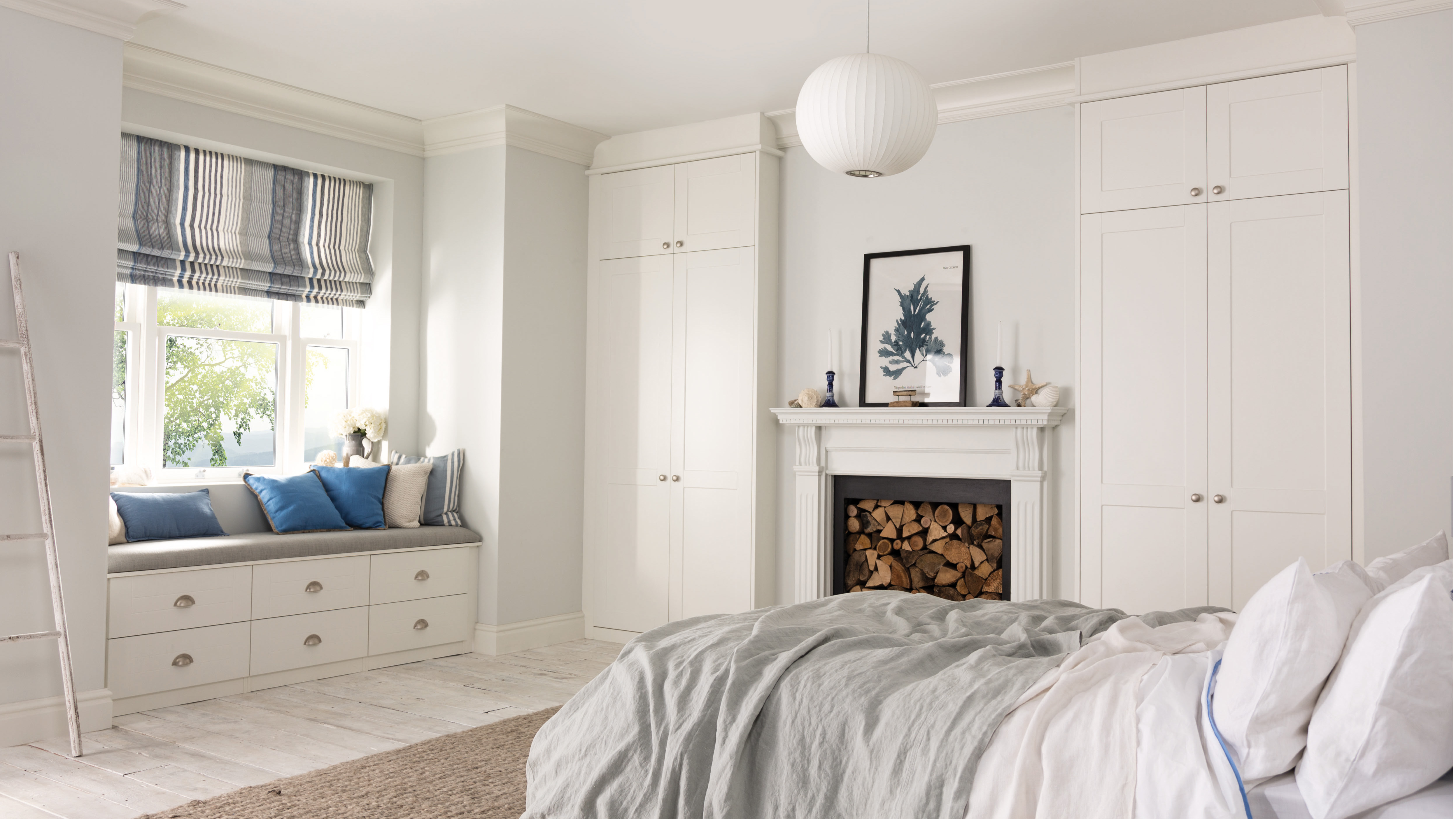
Read more:
- Inspired to decorate your bedroom? We have 25 bedroom decorating ideas
- Need more design tips? Read how to design a bedroom
Join our newsletter
Get small space home decor ideas, celeb inspiration, DIY tips and more, straight to your inbox!
-
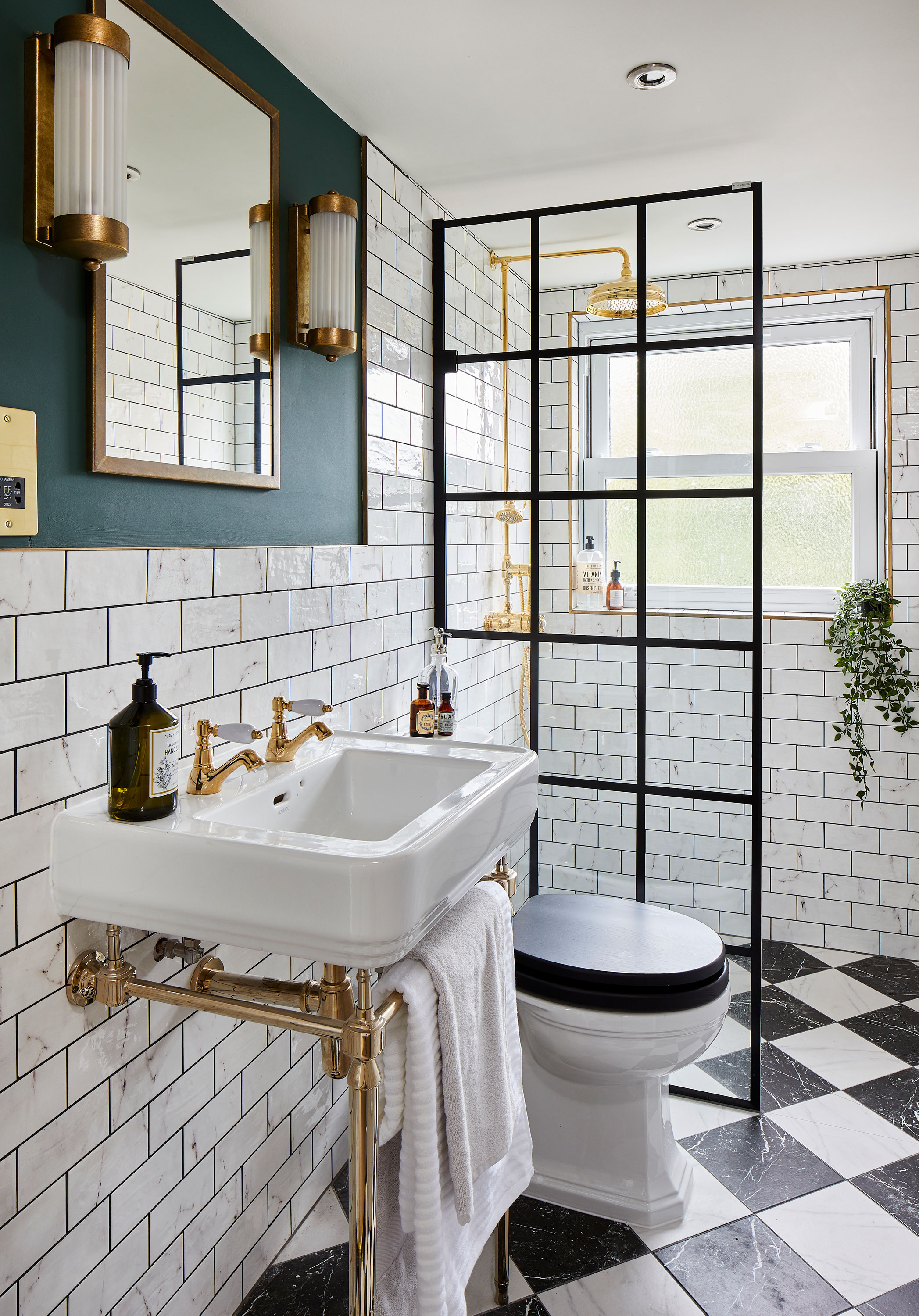 Real home: this en suite shower room is packed with style
Real home: this en suite shower room is packed with styleLeo and Tamsin’s loft en suite is proof that clever design tricks and a pinch of imagination can transform a small bathroom
By Ellen Finch
-
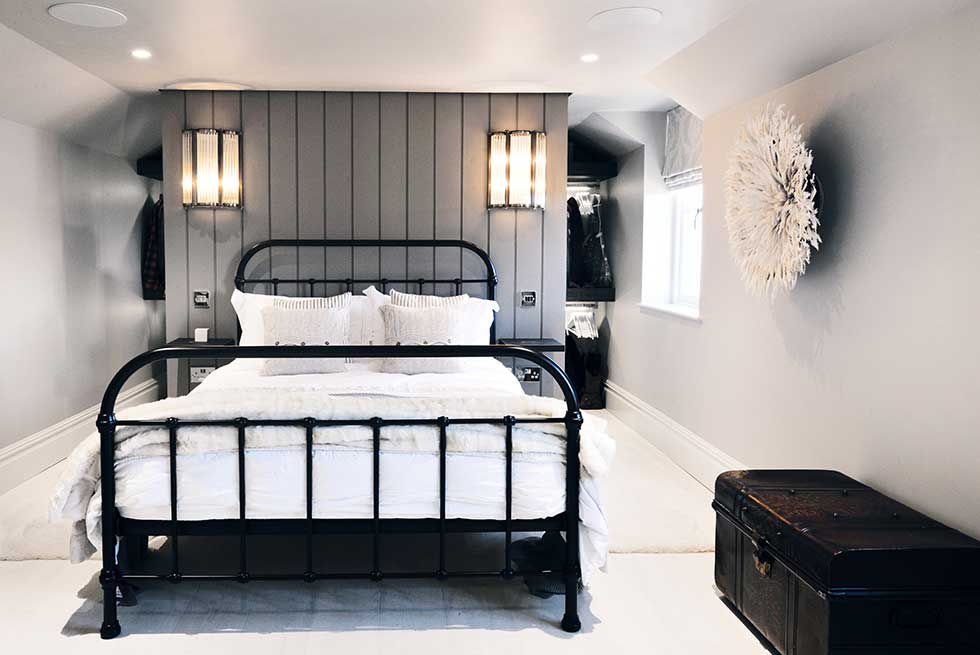 Real home: a Scandinavian-style master suite makeover
Real home: a Scandinavian-style master suite makeoverA memorable hotel stay inspired Emma and Mark Boulton when it came to creating their own master bedroom suite in a Scandinavian style
By Emily Shaw
-
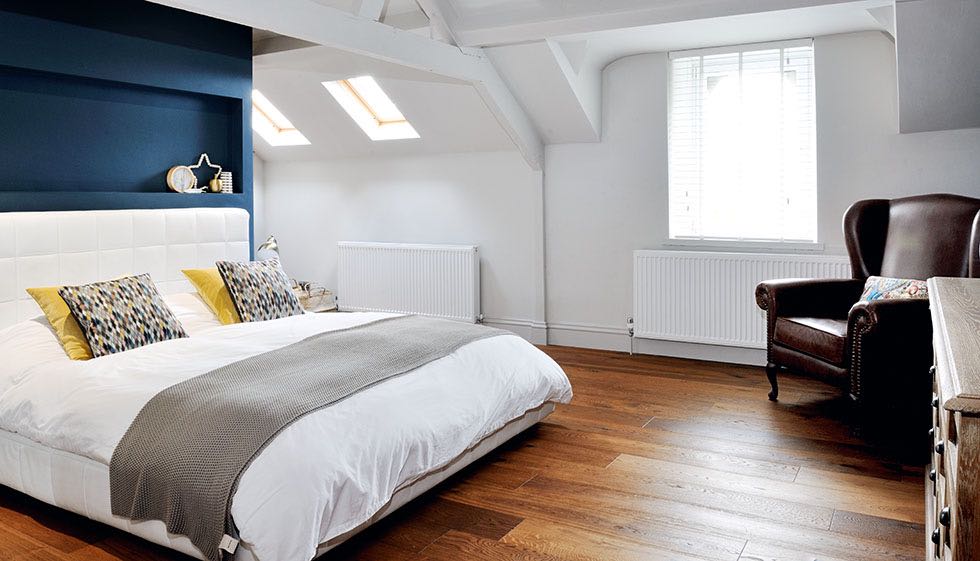 Real home: a sophisticated master suite loft conversion
Real home: a sophisticated master suite loft conversionClever interior design and bold colour has transformed this loft conversion into a stylish open-plan master suite
By Nicola Wilkes